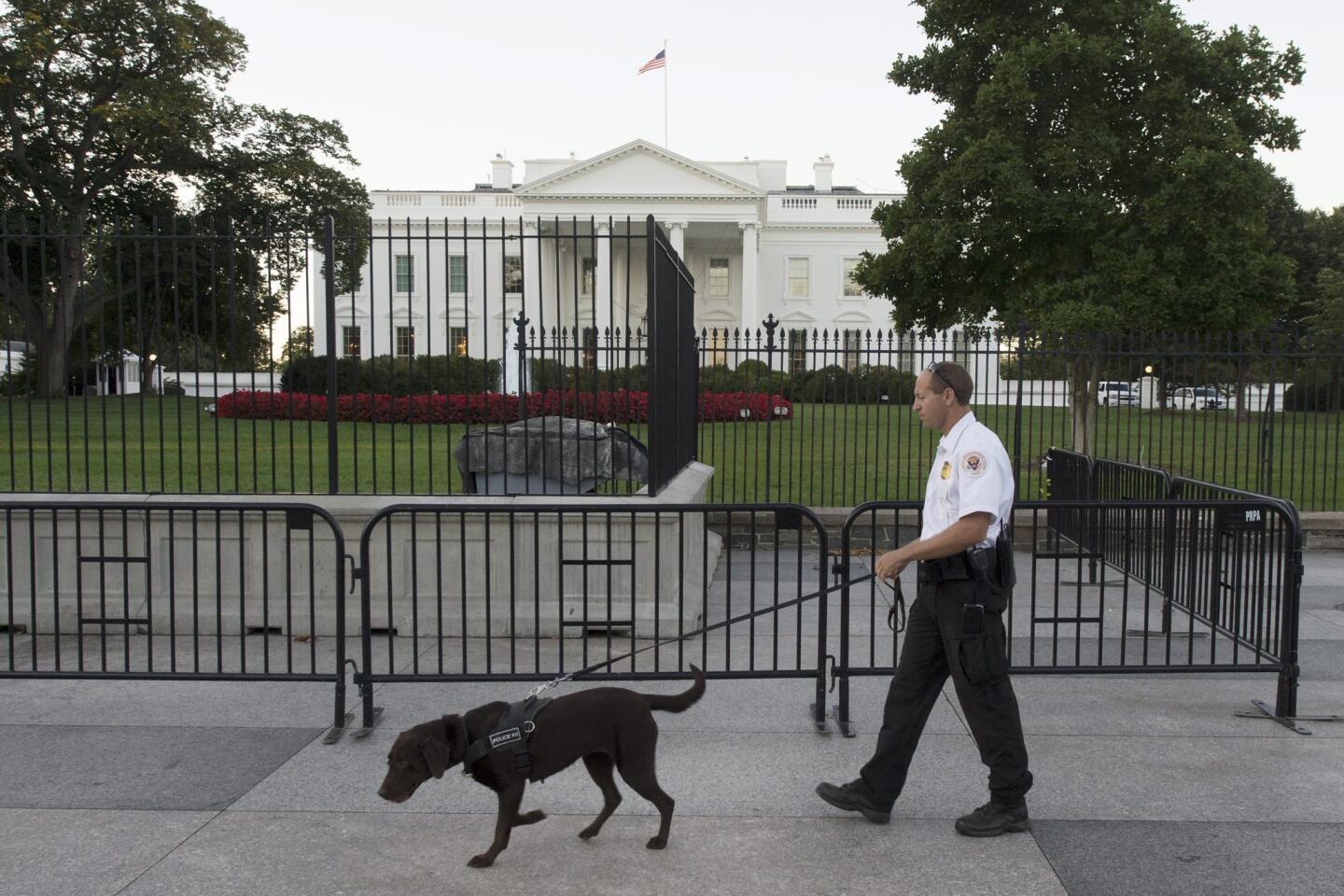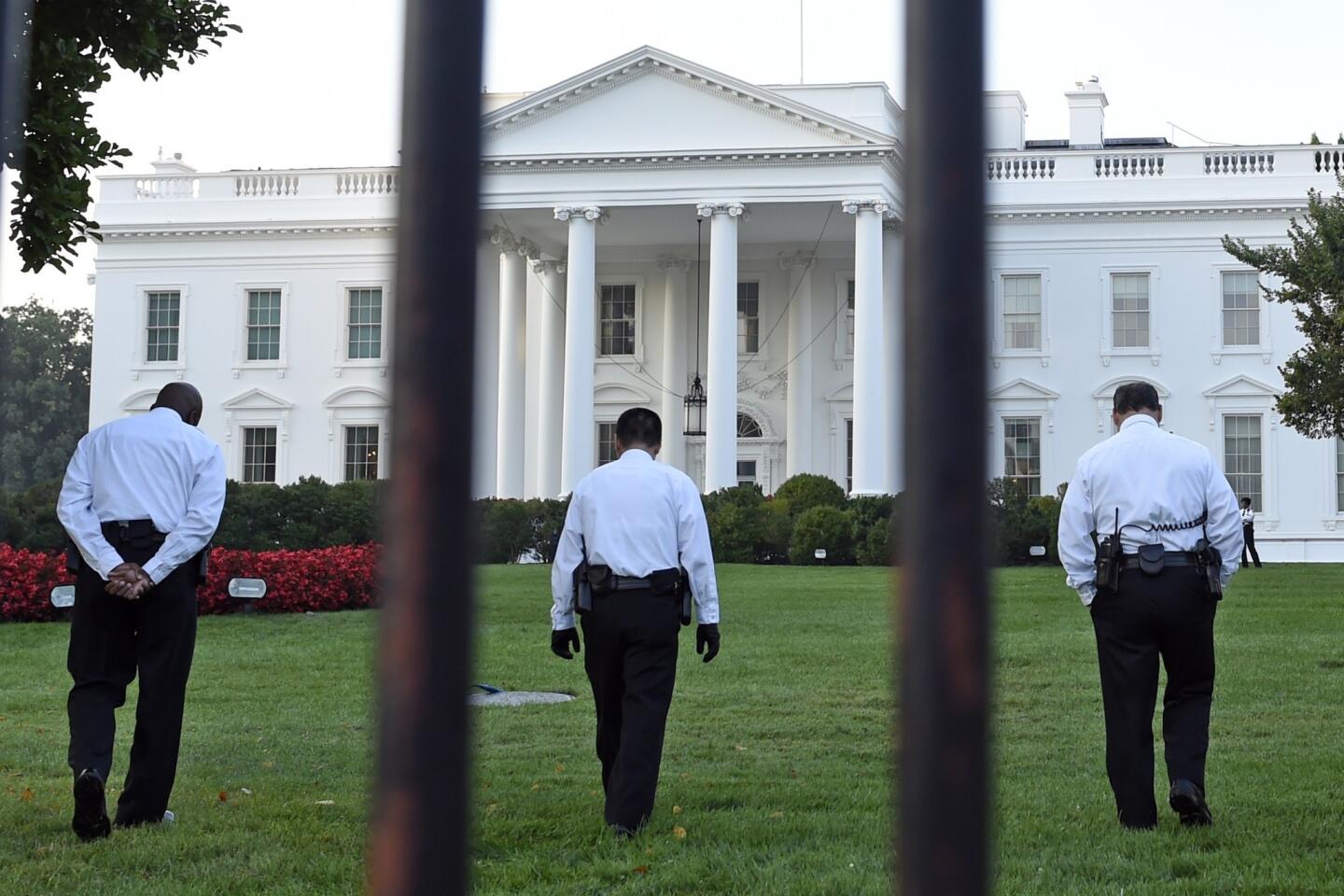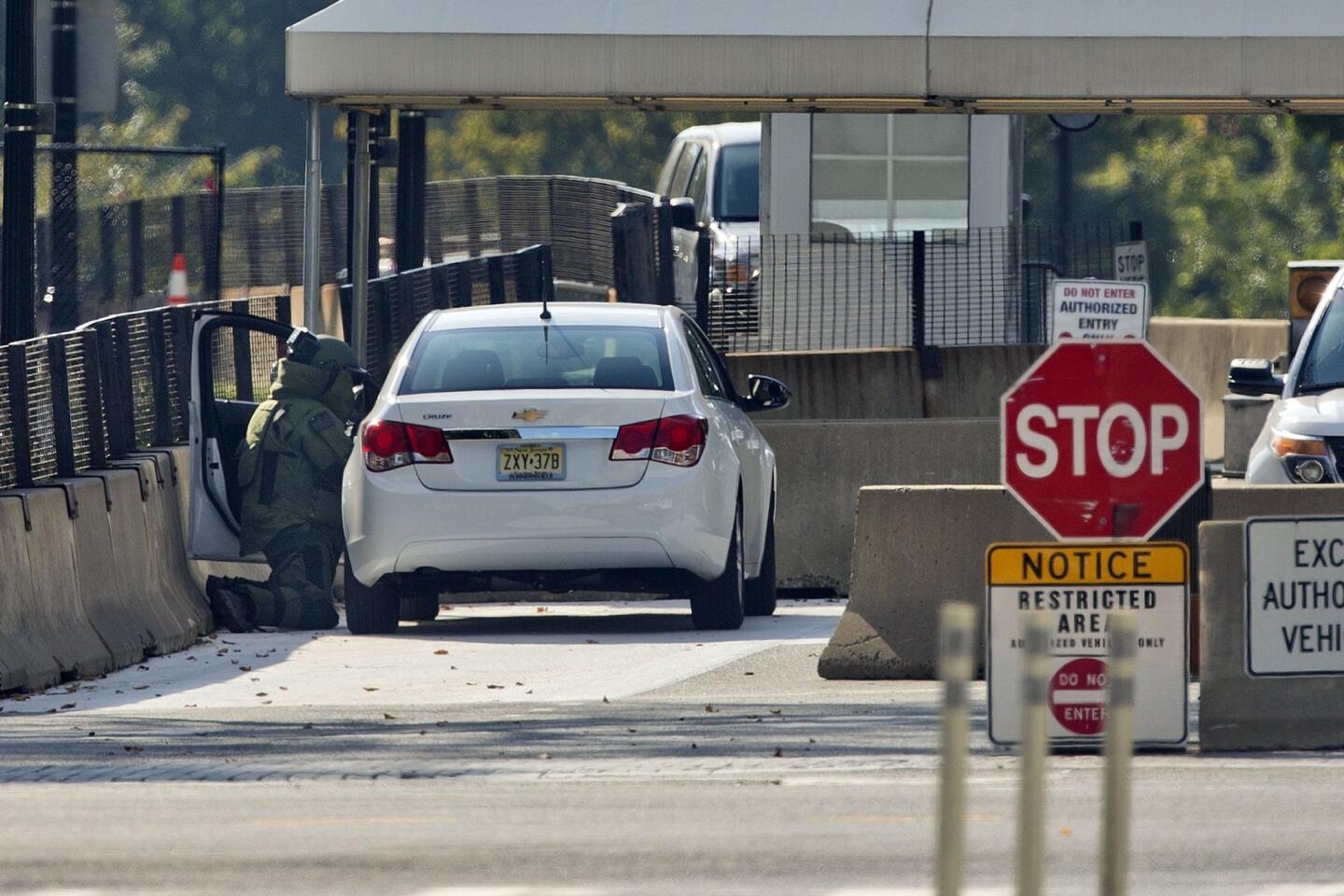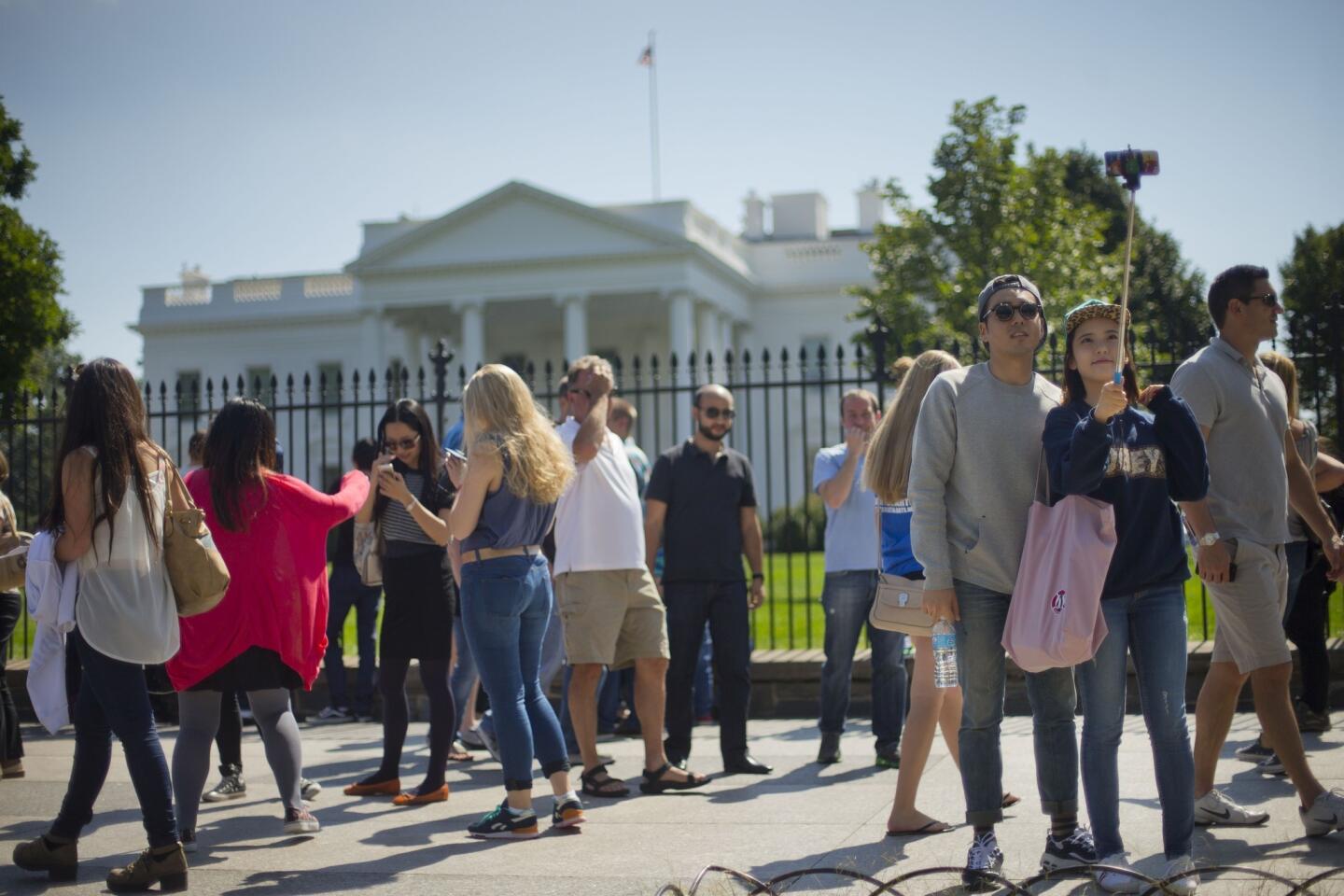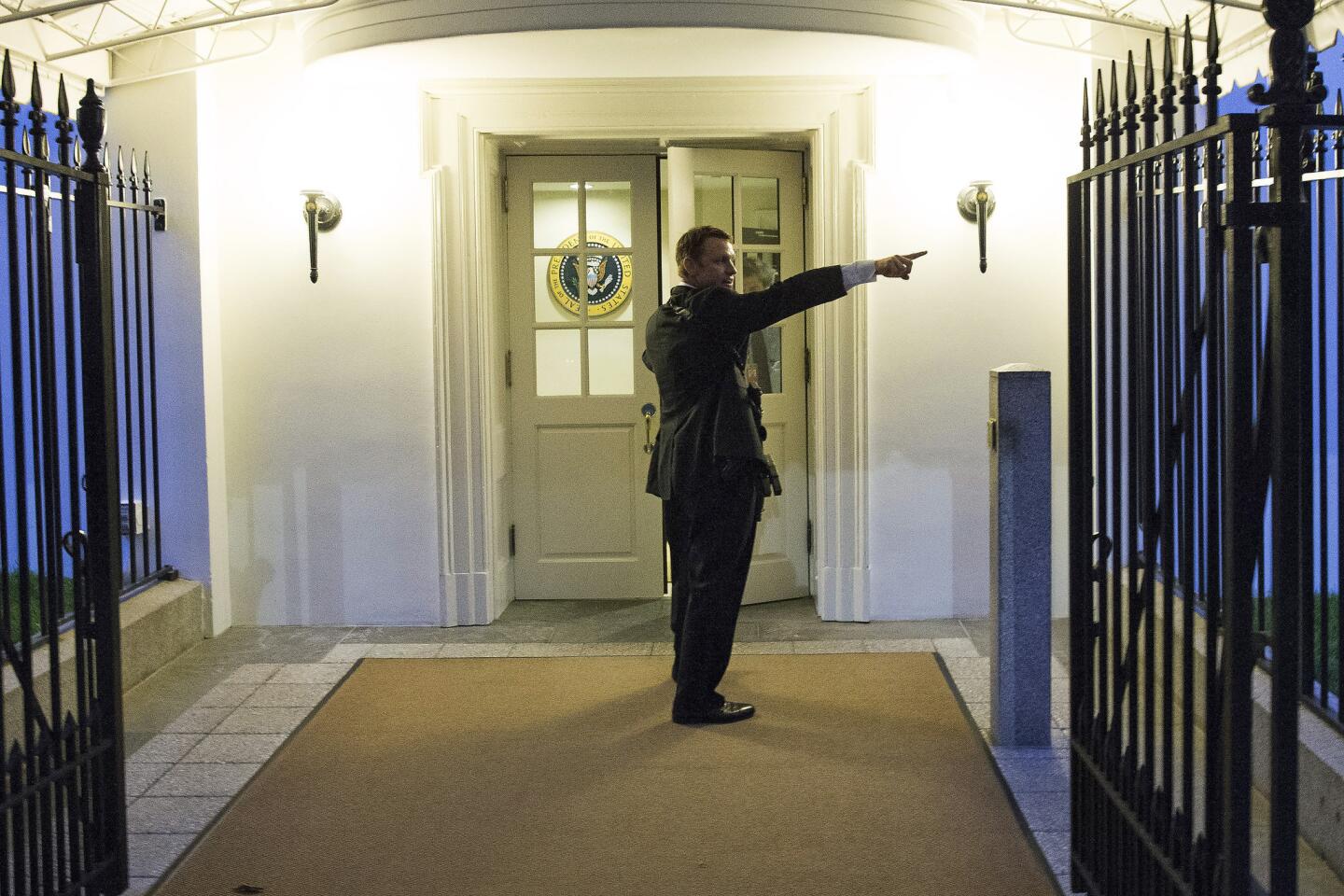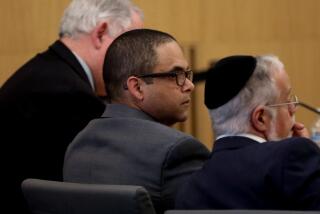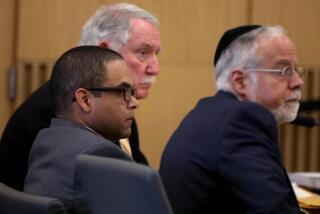A troubled veteran at the White House’s door
Reporting from COPPERAS COVE, Texas — Omar Gonzalez was always popular along this quiet cul-de-sac of neat suburban homes near Ft. Hood. “Omar, Omar!” children would shout as they ran to his front door. But at some point, neighbors of the decorated combat veteran started to worry.
David Haslach, an Army sergeant who lived three doors down, kept trying to call him, and finally went to his front door, wanting to know what Gonzalez had done with his phone. “It’s in the microwave,” Gonzalez told him. The government was trying to track him.
Gonzalez had started to go “off,” Haslach said. He installed motion detector lights and examined the dirt outside his house for footprints. Then after the winter of 2013, Gonzalez left the neighborhood without explanation. “He didn’t want anybody to know where he was going,” Haslach said.
Gonzalez reemerged in dramatic fashion Friday when he briskly scaled a fence at the White House and sprinted across the lawn, making it through the north doors before being tackled by Secret Service agents.
In its immediate aftermath, the incident focused attention on whether White House security was sufficient. But Gonzalez’s status as a troubled veteran — and what is known so far about his life after combat — serves as a reminder of the government’s struggle to care for service members with traumatic deployment histories in Iraq or Afghanistan.
By some estimates, up to a fifth of the 2.6 million troops who served in those wars suffer from post-traumatic stress disorder or depression. Gonzalez was being treated for both.
Interviews with family members and others who know him suggest that the 42-year-old Puerto Rico native had become increasingly disillusioned with the wars, the military and the care he was receiving from the scandal-ridden Department of Veterans Affairs.
The son of a Korean War veteran, Gonzalez split most of his childhood between Puerto Rico and Southern California. He played with toy soldiers for hours on end and dreamed of joining the military.
After earning a GED at Orange High School and spending several years in Puerto Rico, he enlisted in the Army in 1997. He completed his duty in 2003, but reenlisted two years later as the U.S. deepened its commitment in Iraq.
Deployed to Iraq in 2006, he operated a .50-caliber machine gun mounted on a Humvee.
In one harrowing incident he recounted for his family, Gonzalez said he and a buddy were pinned by sniper fire for more than eight hours between two cars in the Baghdad area.
He sent home a snapshot of the single bottle of Gatorade they shared through the ordeal.
Gonzalez had rarely attended church growing up, but as the wars dragged on he began trying to find God, family members said.
He had a camouflage Bible bearing the black horse insignia of the 1st Cavalry Division, said his then-wife’s ex-husband, the Rev. Jerry Murphy, with whom he was friendly.
“He ... said that prayer, God, the Bible he carried the whole time he was there, kept him safe,” Murphy said.
Gonzalez was proud of his service, but like many soldiers, he began to lose faith in the mission, family members said. He eventually concluded that the purpose of the war was “just to take shelling, do patrols and get people killed,” said his brother, who did not want his name to be published pending the completion of the Secret Service investigation.
Gonzalez left Iraq in early 2008, according to military records. Relatives said his Humvee was hit by a homemade explosive device near Baghdad and he suffered injuries that eventually, with other problems, led to the removal of part of his foot. He was transferred to a desk job at Ft. Hood until he was given a medical retirement in 2012.
At home, Gonzalez went from a jokester who would break into antics to make people laugh to a haunted figure who kept talking about how “‘they’ were watching him, ‘they’ were trying to poison him,” said his former wife, Samantha Bell, who left him when she said she couldn’t take it anymore.
He began placing guns behind every door in the house and carrying a sidearm on his hip.
She once woke in the middle of the night, she said, and he was standing there, staring at her.
“He would just look sad all the time. ... He’d lay there and look like he’d want to cry,” she said.
In addition to his physical injuries, his family said, Gonzalez suffered from nightmares and insomnia — common symptoms of PTSD — and was taking antidepressants and anti-anxiety medication.
But his mental health problems appear to run deeper. In court filings Saturday, prosecutors said he told a Secret Service agent that “he was concerned that the atmosphere was collapsing and needed to get the information to the president of the United States so that he could get the word out to the people.”
Dr. Bruce Kagan, a psychiatrist at UCLA and the West Los Angeles VA, said that such delusions were usually not a feature of PTSD. In rare cases, psychosis can occur in severe cases of depression.
Gonzalez’s neighbors in Copperas Cove said he seemed to be doing fine at first after his Army service, although he walked with a cane and wore a back brace.
“He was one of those guys who would do anything for you — very friendly,” said Haslach, 40, who also served in Iraq.
He was a magnet for children, who frequently flocked to his house, but Gonzalez confided to a corrections officer who lived down the street, Elke Warner, 49, that the children actually bothered him.
“He told me the kids made him nervous, that when he was in combat, kids had bombs strapped to them,” Warner said.
He never left his house unarmed, he told her, even when he was walking his dogs.
At one point, she started bringing him meals when she noticed he was losing weight and living without electricity or heat. She last saw him at a park, where she said he told her he was living out of his truck at a Ft. Hood campground.
To friends and relatives, he often complained about the VA. Stuck in a massive backlog of disability claims, it took more than a year to start receiving his monthly compensation for his medical conditions, according to his brother.
He was also frustrated by long wait times for care.
“‘It feels like I’m running my head into a wall,’” his brother recalled him saying. “We told him to speak with someone at Ft. Hood and see if they could talk to his psychologist.”
It is unclear where he was receiving treatment, but the VA medical center closest to Copperas Cove is located about half an hour away in the city of Temple.
That facility is one of several across the country implicated in a far-reaching scandal over access to medical care and manipulation of data to cover up long waiting times. Whistle-blowers have testified that they were acting under pressure from higher-ups who stood to earn bonuses if they could make it appear that patients were being seen promptly.
The scandal led to the resignation of Veterans Affairs Secretary Eric K. Shinseki in May. But it is far from over.
Last week, VA officials came under heavy attack at a congressional hearing in which they acknowledged for the first time that delays in care contributed to deaths at the VA in Phoenix, where the scandal began.
Much of the logjam at the VA is due to increasing recognition of PTSD and other mental health problems.
PTSD is one of the fastest-growing conditions in the VA system. More than 650,000 veterans — including 350,000 from the Vietnam era and 225,000 from the recent wars — receive monthly disability pay for the disorder.
Gonzalez’s family said the Secret Service indicated that it would try to get him help.
For the moment, though, it is helping to prosecute him. Gonzalez was scheduled to appear in court Monday on charges of unlawful entry to the White House complex while carrying a weapon — a 31/2-inch folding knife in his pocket.
“Omar himself never thought his condition was all that bad,” his brother said. “But we knew. He’s so sick, he’s not thinking rationally.”
molly.hennessy-fiske@latimes.com
Times staff writer Joseph Tanfani contributed to this report.
More to Read
Sign up for Essential California
The most important California stories and recommendations in your inbox every morning.
You may occasionally receive promotional content from the Los Angeles Times.
